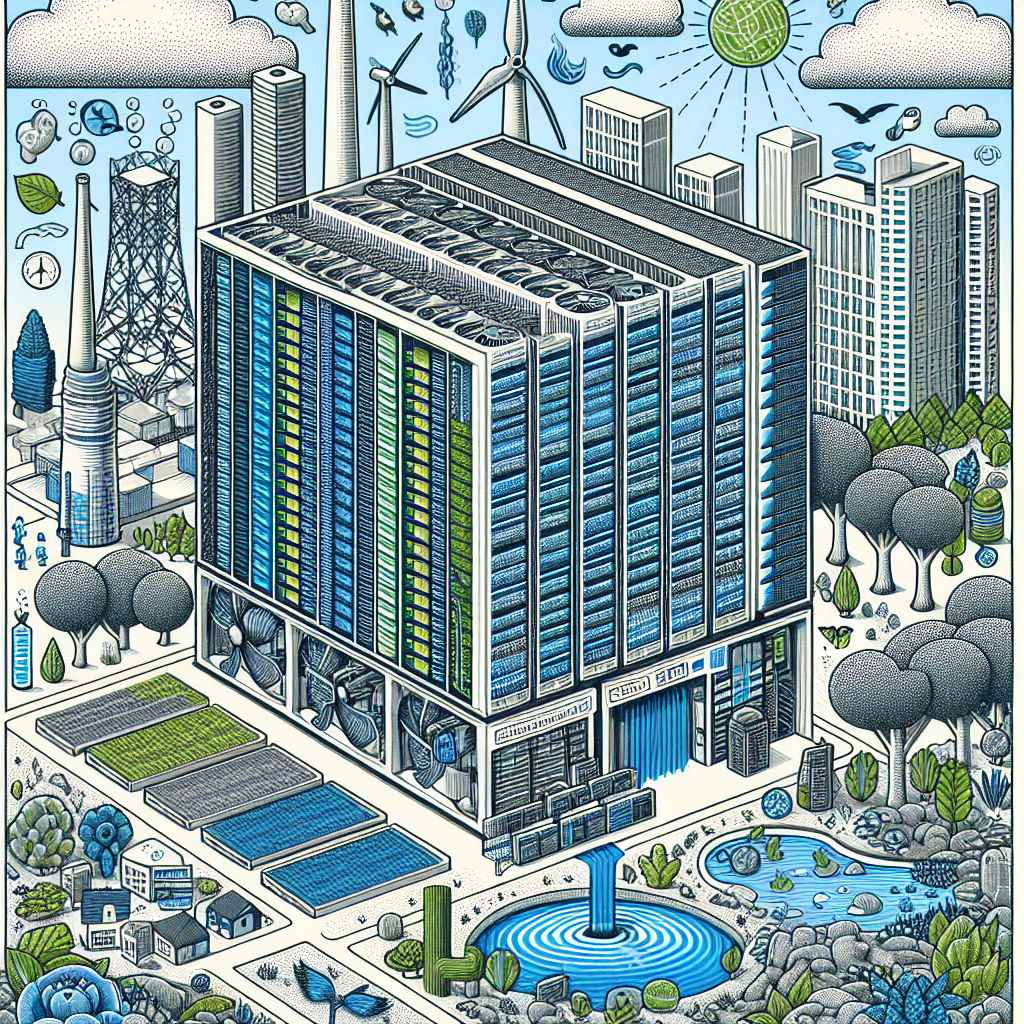Your cart is currently empty!
Evaluating the Environmental Impact of Data Center Cooling Systems

Data centers are essential for storing and processing vast amounts of information in our digital age. However, these facilities consume a significant amount of energy to keep servers running efficiently. One crucial aspect of a data center’s operation is its cooling system, which plays a vital role in maintaining the optimal temperature for servers to function effectively.
The environmental impact of data center cooling systems is a topic that is gaining more attention as concerns about climate change continue to grow. Evaluating the environmental impact of these systems is essential to ensure that data centers are operating in a sustainable manner.
One of the primary concerns regarding data center cooling systems is their energy consumption. Traditional cooling methods, such as air conditioning, can be incredibly energy-intensive and contribute to a significant carbon footprint. As a result, data center operators are increasingly turning to more energy-efficient cooling solutions, such as liquid cooling or free cooling, to reduce their environmental impact.
Liquid cooling systems, for example, use water or other liquids to cool servers, which can be more energy-efficient than traditional air conditioning systems. These systems can also be more cost-effective in the long run, as they require less energy to operate and can help reduce overall energy consumption.
Free cooling systems, on the other hand, use outside air to cool servers, eliminating the need for mechanical cooling systems altogether. While this can be a highly energy-efficient solution, it may not be suitable for all climates or data center locations.
In addition to energy consumption, another environmental consideration when evaluating data center cooling systems is water usage. Traditional cooling systems can be water-intensive, especially in areas with limited water resources. Data center operators are increasingly looking for ways to reduce water usage in their cooling systems, such as using recycled or reclaimed water, or implementing water-saving technologies.
Furthermore, the use of refrigerants in cooling systems can also have a negative impact on the environment. Many traditional refrigerants, such as hydrochlorofluorocarbons (HCFCs) and hydrofluorocarbons (HFCs), are potent greenhouse gases that contribute to global warming. Data center operators are increasingly looking for alternative refrigerants that have a lower environmental impact, such as natural refrigerants like ammonia or hydrocarbons.
Overall, evaluating the environmental impact of data center cooling systems is essential for ensuring that these facilities are operating in a sustainable manner. By adopting energy-efficient cooling solutions, reducing water usage, and using environmentally-friendly refrigerants, data center operators can minimize their environmental footprint and contribute to a more sustainable future.

Leave a Reply